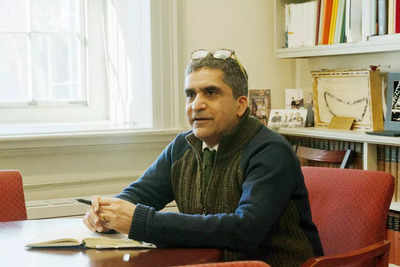In a recent interview with The Harvard Crimson, Harvard College Dean Rakesh Khurana strongly defended the role of diversity in higher education and research, amidst growing concerns over the Trump administration‘s efforts to dismantle diversity, equity, and inclusion (DEI) initiatives at US universities. In his first interview of the semester on February 23, 2025, Khurana addressed the ongoing political landscape, emphasizing that institutions like Harvard must remain committed to their values, despite external pressures.
With the Trump administration’s push to cut federal funding for DEI programs and research, Khurana’s comments highlight the tension between maintaining academic excellence through diverse perspectives and the political forces aiming to limit such efforts. He stated that Harvard’s diversity was central to its academic success, asserting that “our diverse backgrounds and experiences and talents drive academic excellence,” as quoted by The Harvard Crimson.
Diversity drives academic excellence
In his discussion, Khurana outlined how Harvard’s commitment to diversity has been integral to its academic achievements over the years. He explained that “diverse thinking actually creates fertile ground for new ideas,” adding that the university’s longstanding value of diversity has been fundamental to its mission for over 400 years. This commitment, he argued, is not only essential for intellectual growth but also for the creation of new knowledge that serves society.
Despite the Trump administration’s directive to federal agencies to terminate equity-related grants and curtail DEI efforts at federally funded institutions, Khurana maintained that Harvard should continue to uphold its values. The federal government’s attempt to restrict funding for DEI programs and research has been a central issue, particularly following Trump’s administration appointments of critics to key positions in the Department of Education. The department has circulated a letter, suggesting that the Supreme Court’s 2023 ruling against race-conscious admissions would extend to other areas such as scholarships, housing, and academic decisions, a stance Khurana disagreed with, as reported by The Harvard Crimson.
The importance of federal funding for research
Khurana also defended Harvard’s receipt of federal research funding, addressing criticisms from Trump’s administration, which described large portions of federal research spending as wasteful. The president had questioned why Harvard, with its $50 billion endowment, needed such financial support. However, Khurana countered by explaining that federal funding enables universities like Harvard to make meaningful contributions to society. He emphasized that research is often complex and takes years to show its benefits, but it plays a vital role in global competitiveness and advancing a healthy democracy.
Despite the political uncertainty, Khurana concluded that Harvard should not operate out of fear but out of a conviction that truth and values matter. As quoted by The Harvard Crimson, he asserted, “We should not be an institution that operates out of fear, but operates out of a sense of conviction that the truth is important.” This sentiment resonates deeply with Harvard’s long-standing reputation as a leader in academia and its commitment to intellectual freedom in the face of external political pressures.


